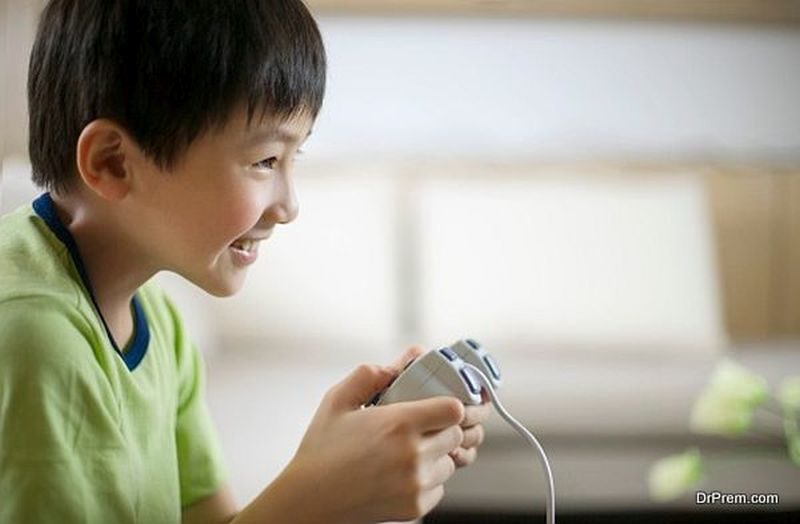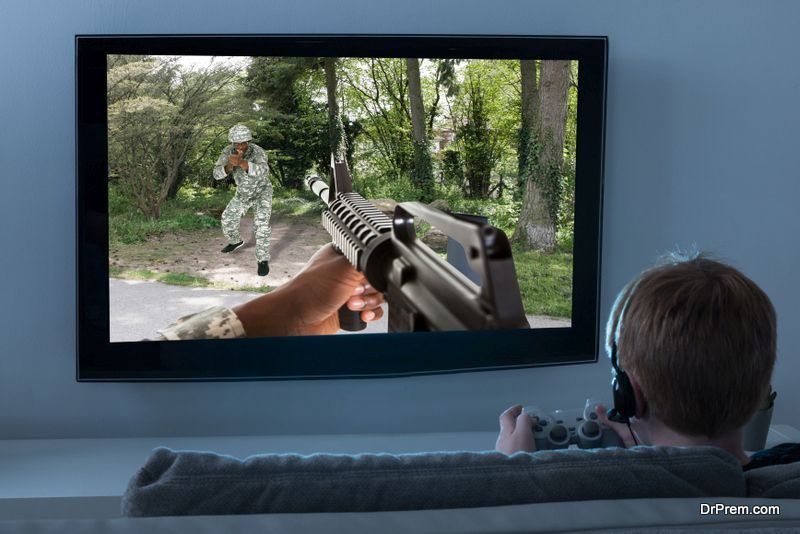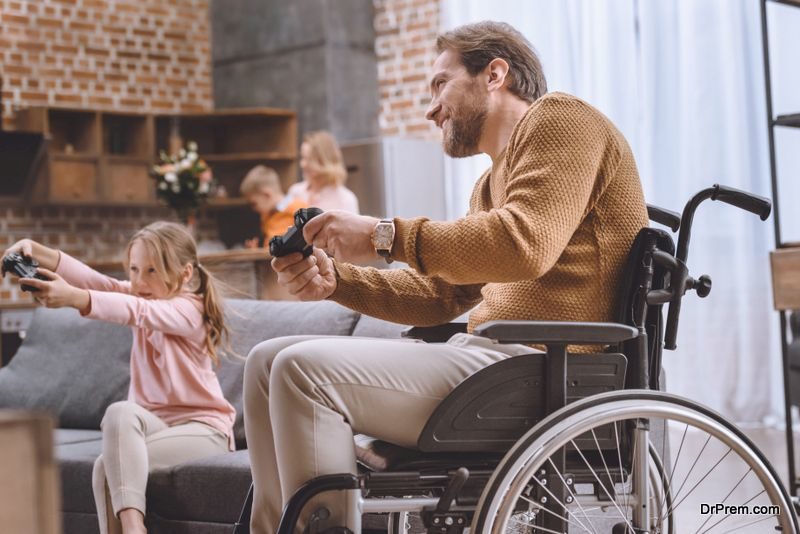Video games – the 20th-century sensation – has been a trending topic to discuss.
From the very first video game of Pong in the 1970s to any latest hullabaloo, video games have always been a reason for concern among parents. Games like Counter-Strike, PubG, Pokemon go, Candy Crush, League of Legends, Minecraft, Grand Theft Auto, Dota2, etc have created a worldwide buzz on their release. They have caught on like wildfire, leaving parents and guardians worried about its effects on their kids.
 The influence of video games on human behavior and human minds has long been discussed. But whenever the topic comes up, people are very quick to highlight the perceived negative effects it has on the human mind and behavior.
The influence of video games on human behavior and human minds has long been discussed. But whenever the topic comes up, people are very quick to highlight the perceived negative effects it has on the human mind and behavior.
The violent nature of video games has been condemned all the time, with a common notion that these games increase real-life aggression.
Renowned global leaders and social influencers are in a life long debate to put a ban on violent video games (because the only solution to anything is to ban it, pun intended).
People also blame the rise in crimes committed by teens on the violent nature of video games.
There are various claims backed by very little research that playing video games can cause real-life violent behavior.
But can video games really prime young minds into committing aggressive behavior?
A meta-analysis study conducted by Dr. Christopher J. Ferguson, in which he analyzed 24 published research on violent video games and human behavior has a different story to tell. The study found no direct link between playing aggressive video games and real-life violent behavior.
Spending too much time on video games has its share of negative effects, but too much of anything is a bad thing? Right? And how far can we generalize the outcome?
Like every coin has two sides to its story, let’s dive into some of the positive effects of playing video games.
1) It can improve cognitive abilities:
 Various researches have linked playing video games to an increase in cognitive abilities. It helps improve your Visuospatial cognition, which is basically your ability to identify visual and spatial relationships among objects.
Various researches have linked playing video games to an increase in cognitive abilities. It helps improve your Visuospatial cognition, which is basically your ability to identify visual and spatial relationships among objects.
This ability is very useful in careers like architecture, engineering, and even surgery.
In fact, a study conducted on surgeons found that playing violent video games can be linked to an improvement in certain surgical procedures.
2) It may actually reduce real-life violence:
Contrary to popular belief that playing games can cause real-life aggressive behavior in kids, certain studies have shown that video games, especially violent ones, may reduce real-life violent behavior. They help channelize aggressive behavior, giving humans a safe place to vent out frustration. A great way to get out the negative energy in a safe and fun manner.
3) It can help improve social skills.
 Video games are for loners? You might want to rethink that generalized stereotype.
Video games are for loners? You might want to rethink that generalized stereotype.
Many pieces of research and studies conducted on this topic tell a different tale.
Video games, especially multiplayer games, can actually help increase social skills. It helps in increasing the sense of solidarity as it involves solving various tasks together, and it’s an established fact that facing any threat together, perceived or real, can actually increase the sense of belonging.
4) Improvement in problem-solving ability:
Video game’s basic operating format is of solving the problem and increasing the level of difficulty with each passing stage. It helps in improving problem-solving skills in real life as well. Playing video games can be a great form of mental exercise.
5) Helps with mental wellbeing:
 The sense of achievement and solving problems can actually have a positive effect on people. Games like Pub-g where you compete with various players can give a sense of accomplishment.
The sense of achievement and solving problems can actually have a positive effect on people. Games like Pub-g where you compete with various players can give a sense of accomplishment.
6) Improves motor skills:
Studies have shown that playing video games can actually improve your motor skills in real life as well.
7) Better hand-eye coordination:
 As playing video games requires you to push various buttons while concentrating on the screen for different threats and turns, it naturally improves your hand-eye coordination.
As playing video games requires you to push various buttons while concentrating on the screen for different threats and turns, it naturally improves your hand-eye coordination.
This improved hand-eye coordination can actually come in handy while playing sports, as all sports require good hand-eye coordination. It can also increase the overall productivity of the child.
8) Developing multitasking skills:
Playing video games involves performing various tasks together. Instead of the general notion that video games can reduce your productivity, playing games for an appropriate period of time can actually improve your level of productivity as it increases your multi-tasking skills.
9) Strengthens the level of concentration:
 Video games involve performing various mental activities together along with various hand movements, which requires good level of focused attention. Many kinds of research have backed that playing video games can improve the level of concentration in humans, which in turn can increase the level of productivity.
Video games involve performing various mental activities together along with various hand movements, which requires good level of focused attention. Many kinds of research have backed that playing video games can improve the level of concentration in humans, which in turn can increase the level of productivity.
10) Increases decision-making skills:
Every aspect of playing video games involves making various decisions in a very short span of time, from choosing your avatar to quick decisions needed while the on-going game. This also affects your skills in making decisions in real life.
11) Improves team-work contribution:
 Multi-player video games that involve playing in teams to achieve a common goal like counterstrike, PubG and many more can actually have a positive impact on teamwork. The team coordination required to defeat the common enemy and winning a shared prize can have a very positive impact on real-life team coordination.
Multi-player video games that involve playing in teams to achieve a common goal like counterstrike, PubG and many more can actually have a positive impact on teamwork. The team coordination required to defeat the common enemy and winning a shared prize can have a very positive impact on real-life team coordination.
12) Increase in situational awareness
Video games can possibly heighten your sense of awareness and your sense of situational awareness. Your grasp on your environment becomes more and more strong: and, you are more likely to notice and acknowledge the events and activities going on around you.
There is a report that says, certain defense training involves playing video games to increase situational awareness. As they require to be mindful of sudden situational changes in the game and accordingly adapt to the situation.
13) Pattern recognition:
 Every video game has some kind of internal pattern in them, which players have to recognize to crack the game and increase the level. This pattern recognition helps with real-life pattern acknowledgment.
Every video game has some kind of internal pattern in them, which players have to recognize to crack the game and increase the level. This pattern recognition helps with real-life pattern acknowledgment.
So to say the least, video games are not the devils we have made them out to be. I am not implying that excessive playing of video games won’t have its negative effects on human behavior, but if we are mindful of the time we spend on video games, then the positive effects it can have on the mind and our productive skills can’t be ignored.




